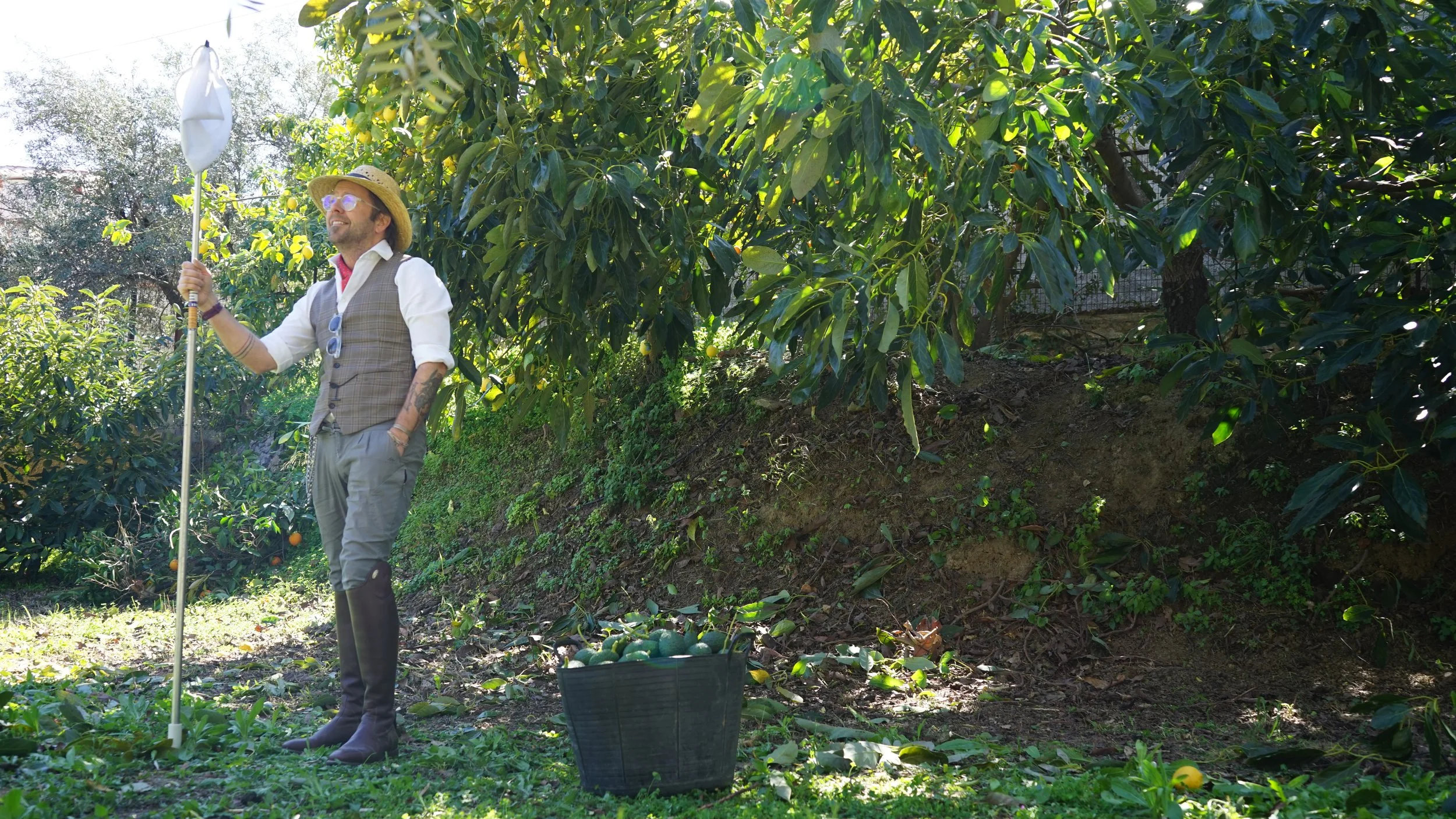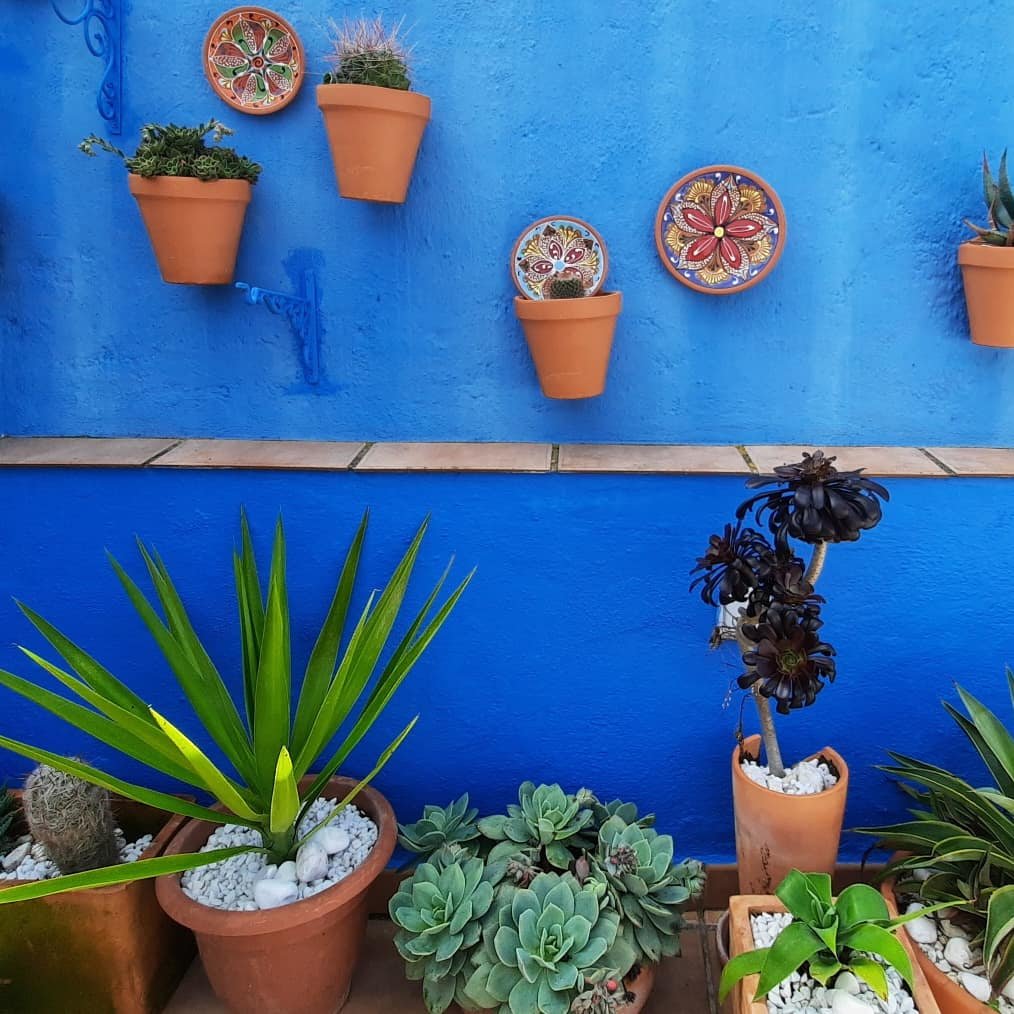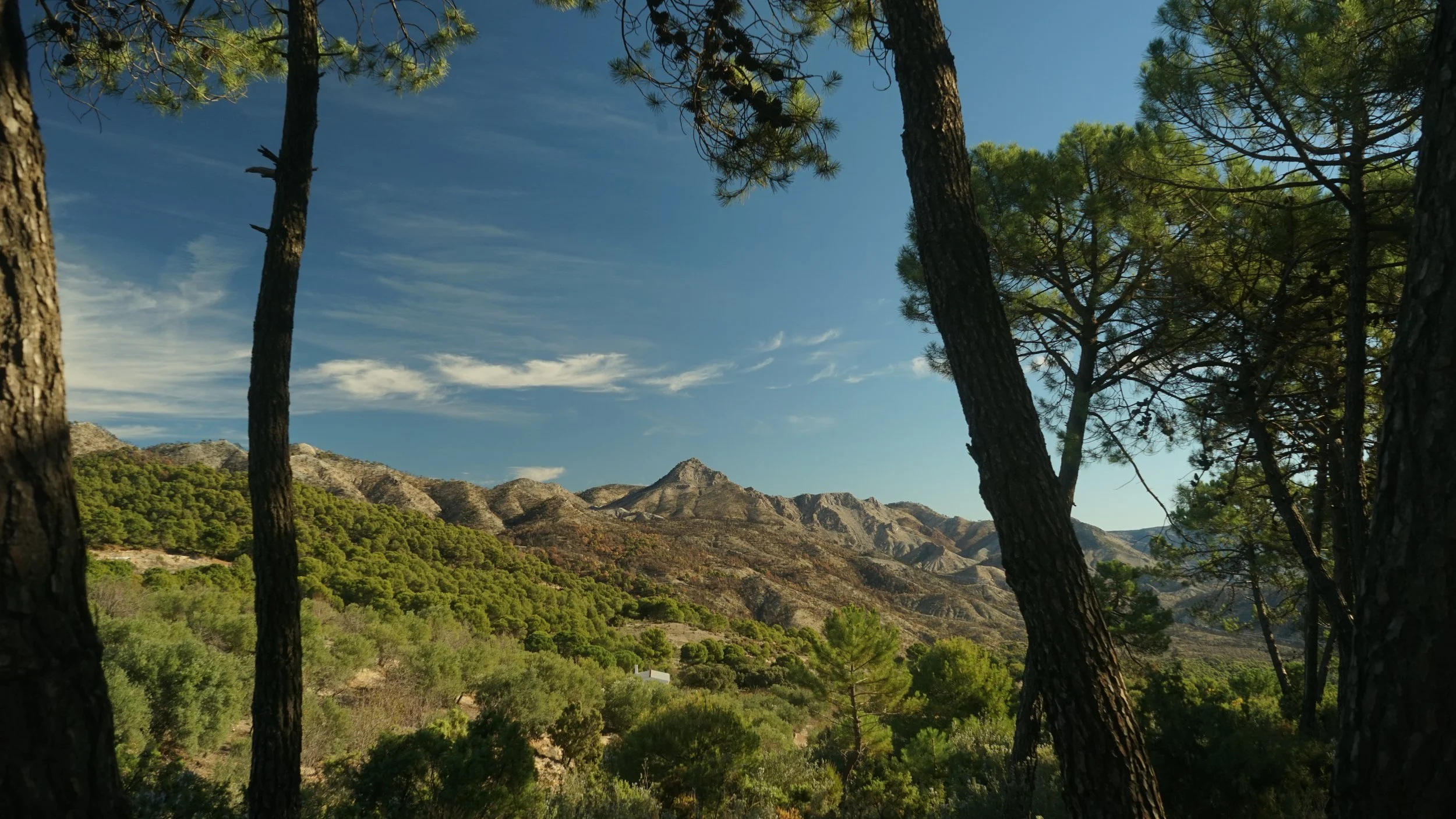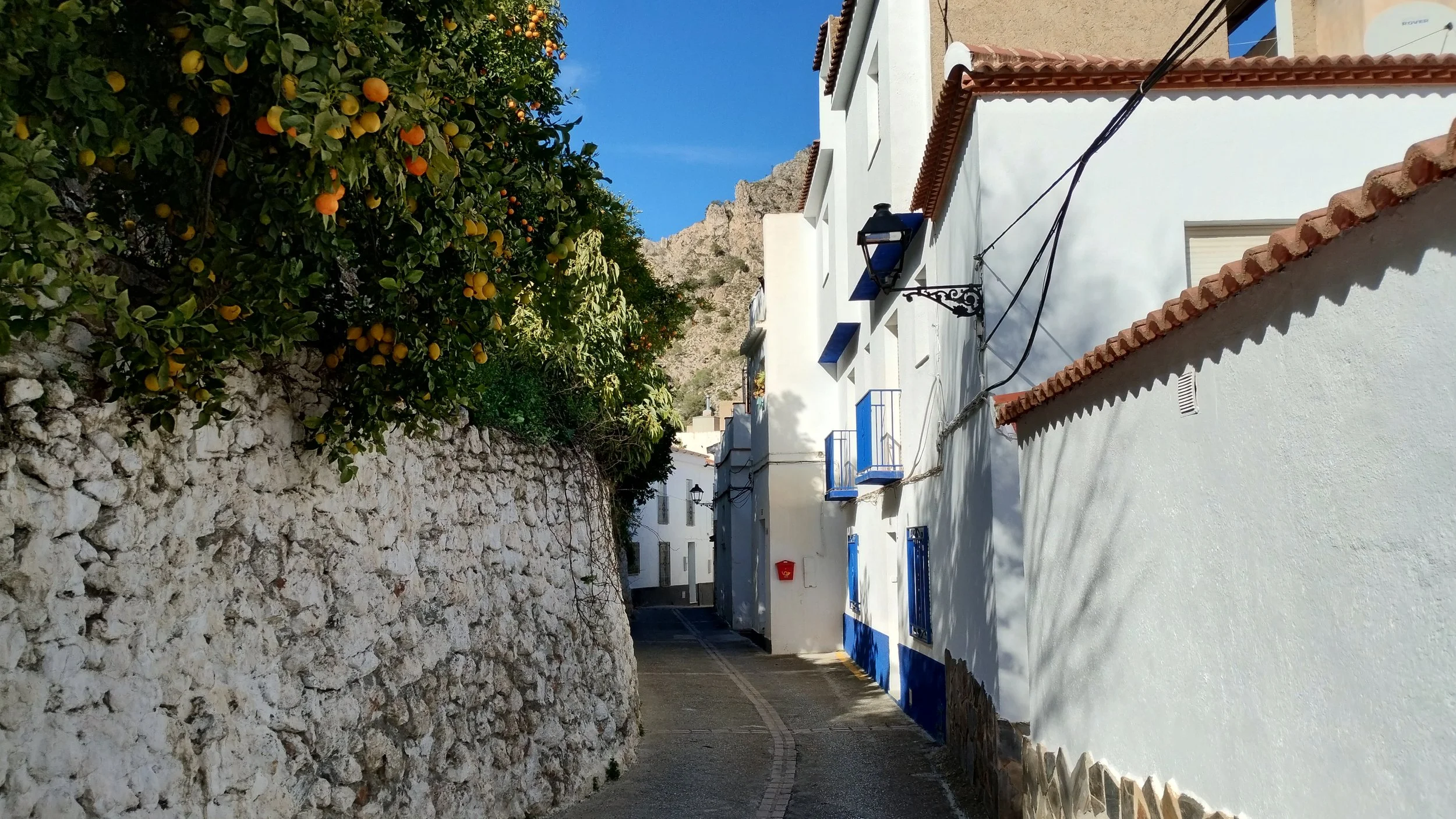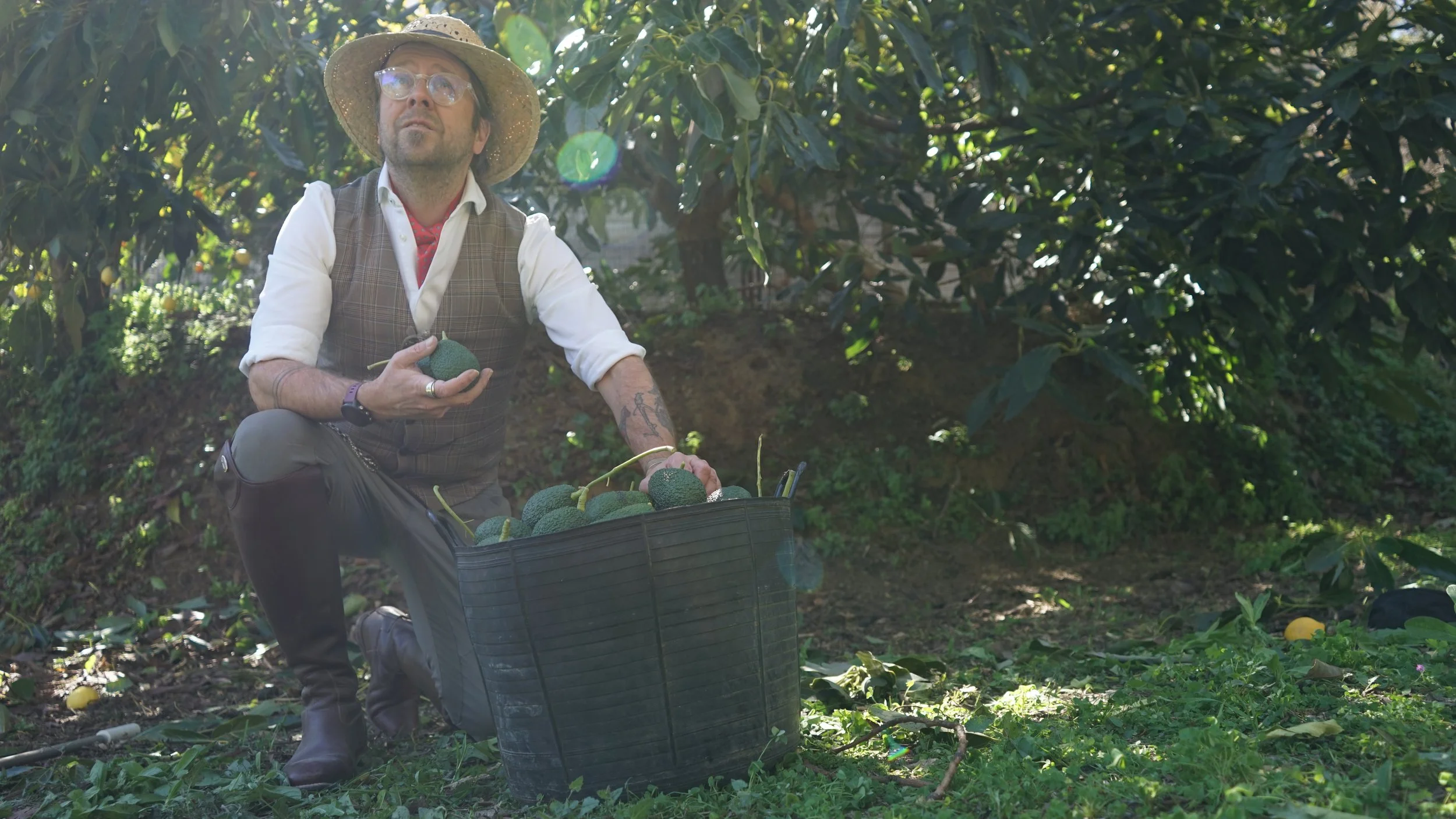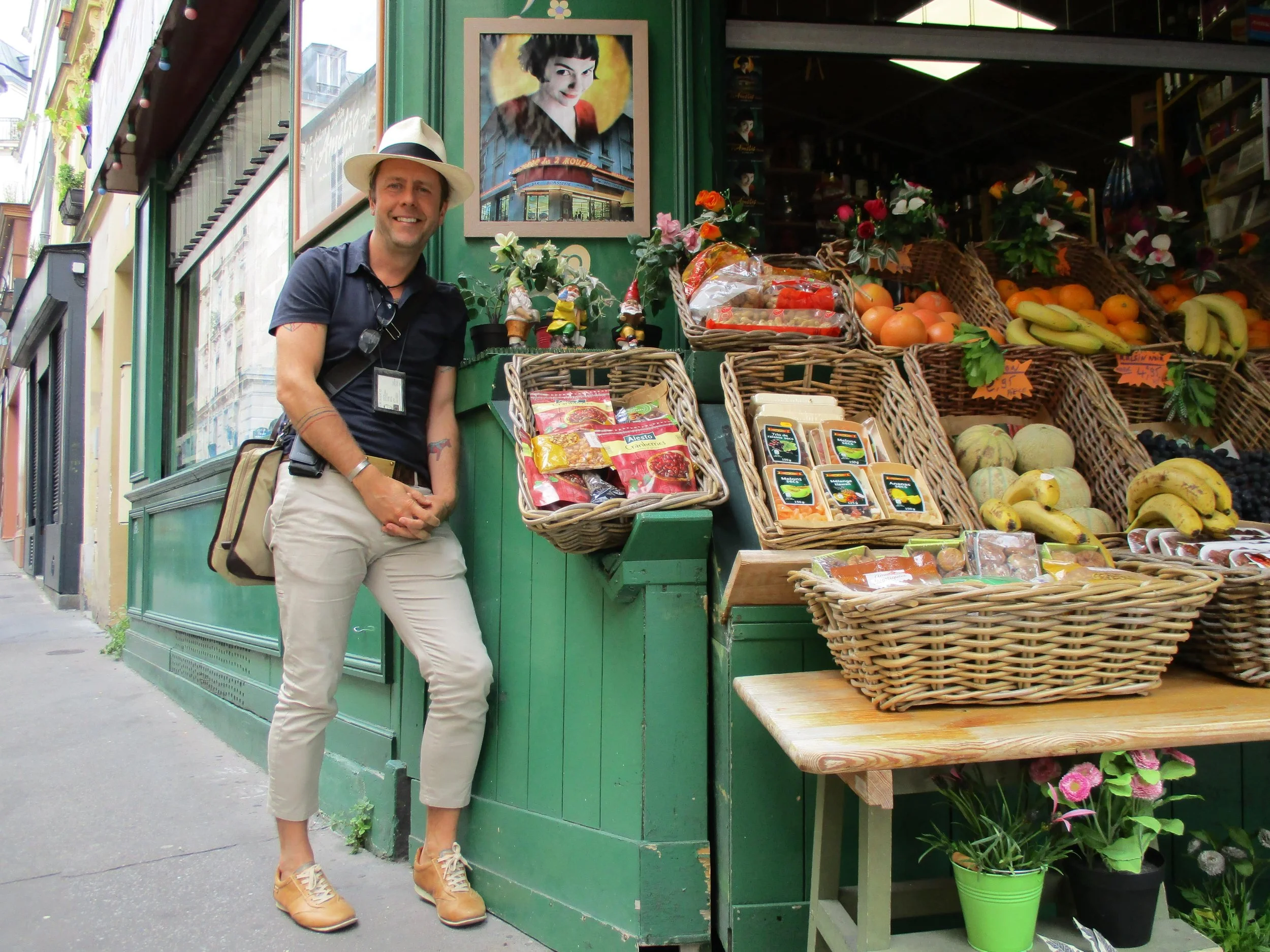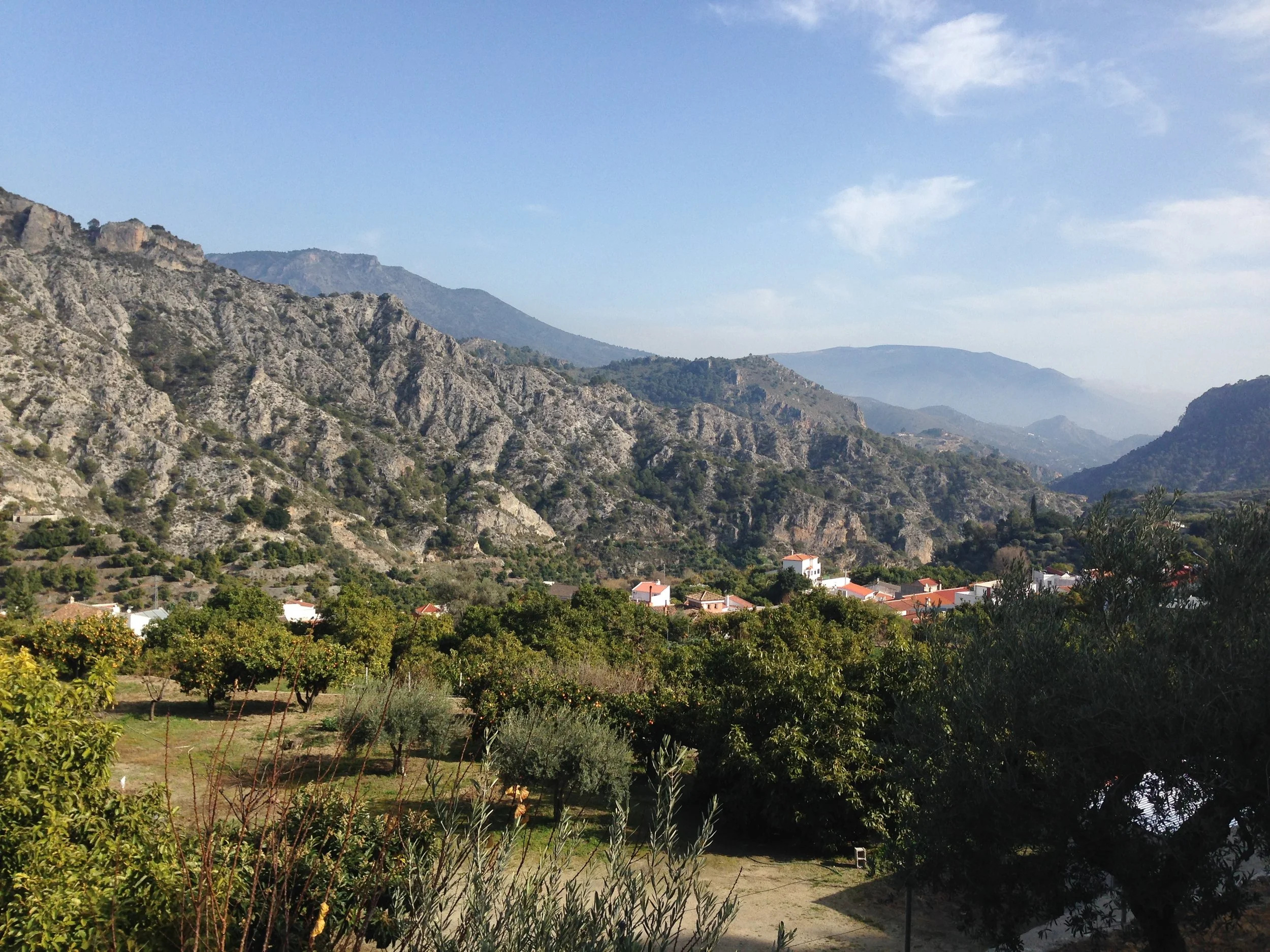Living la vida loca(l): a gentleman farmer in Andalusia
I once visited a town in Northern Italy, somewhere close to the Swiss border as I recall. It was all rather picture perfect; green and peaceful. I had stopped for one of those wonderful espressos and gotten chatting with a barfly in a cafe by a stone bridge, under which an Alpine river flowed rapidly. We exchanged pleasantries after which, unprompted, he proceeded to tell me a rather sad story. One day, years ago, a journalist from a big national paper had visited to write an article. One of those ‘the best town you’ve never heard of’ sort of features the Sunday papers are so fond of. When published, it appeared under the headline ‘L’isola Felice’ - the happy island, and described this small mountain enclave as the kind of place so tranquil and safe, ‘no one ever locks their front doors’. You can guess the conclusion to his tale; within days the place suffered a spate of burglaries - as ne’er-do-wells from all over the country descended on the poor unsuspecting front doors. It’s said key makers and locksmiths did a roaring trade over the weeks that followed.
Hundreds of miles away, the story has stuck with me and I do always feel a certain nagging in the back of my mind as I shut my cellar door behind me, leaving it perpetually unlocked. In the nine years since I bought my small home here in white-washed, rural Andalusia, I think I’ve locked it maybe twice - well, Mr Amazon can just drop my deliveries there when I am not in, and should anyone need to get into my house, a spare key is kept down there in a ‘secret’ location, you see. Today, as I stroll towards one of my neighbours, Antonio, my front door at least is locked and I have even remembered to remove the key from said lock - many is the time I’ve forgotten it there, only to find it dangling happily, unmolested, upon my return hours later. Even more bizarrely, for the first couple of years, before I had my cats - and hence, the cat sitters I have now, I’d come home after my long journeys away guiding, to watered plants and a plastic bottle of local wine sitting ready on the counter - someone must have had a copy of my front door key, but I never discovered who and was never able to thank anyone.
Welcome to my life in a tiny village - inhabitants just over a hundred (and falling) - on the Costa Tropical, Province of Granada, Andalusia, Spain. I say ‘coast’ - I am actually in the foothills of the Sierra Nevada - Southern Spain’s only ski resort, the top of which permits clear day views across the Mediterranean onto the peaks of the Atlas Mountains of Morocco. However, ‘costa this’ and ‘costa that’ are the names the various tourism entities invented for their particular stretch of the magnificent body of water in the 70s when these names were created to attract Northern European tourists. Our part is somewhat of an earthly paradise, at least for farmers of citrus, olives, mangos and avocados - there is a micro climate creating an unusually green belt in an otherwise arid, brown landscape; hence, even here in the hills, we are in fact the ‘Costa Tropical’ - the Tropical Coast. And you join me here in the ‘tropics’ on a perfect day. As it happens, today, February 28th, is none other than Día de Andalucía - Andalusia Day.
It’s a short stroll across the village, past our one and only church, formerly a mosque, past three drinking fountains of free-flowing ice cold water, past our one remaining bar, Bar Carmen’s and our one little village shop (closed today for the festivities), the former school and the doctor’s surgery where visits are held twice a week, to Antonio my friend’s house - where I am to spend most of our one day ‘holiday’. Today is 44 years since the people of Andalusia, voted overwhelmingly to unify our seven provinces and form an ‘autonomo’, effectively the equivalent of a US state, of which there are 17 in Spain. All across our region businesses will be shut and the people will take to restuarants and bars, visit friends, walk in the mountains or relax on the beaches - and to accompany it all, there will be a lot of Flamenco. Reaching Antonio’s is a stroll, I always need to allow time for. You cannot simply walk past someone in this village, one stops, chats a little about the season, the crops, health and ones plans for the day. His finca style house is two minutes away, it takes me twenty to reach it. But reach it I must; for today we harvest.
‘Two euro fifty-four’, says Antonio as he opens the gate for me. That’s the current per kilo (approx 2 lbs) price from the local co-op. He will have checked that this morning, as he does daily during the ‘season’ - which for avocados on the Costa Tropical, runs more or less late winter through early spring. During Covid, when there was no work for guides - not even remote (who wanted a virtual tour of my kitchen?) - this green fruit and the generosity of locals, very much saved me economically. They took pity on me and I was harvesting every day - back breaking work in fields where flat is an alien concept. Not a single fruit must be left on the tree, you climb, stretch, use a special pole with cutters on, or a metal cage which clamps shut when tugging a cord, sweat and curse, anything to get to the very last fruit dangling from a high branch. Today, I am lucky - we are very much just doing the ‘low hanging fruit’ - the dozen or so trees in Antonio’s garden. There are over 500 varies of avocado - we are harvesting Hass today; hard dark green, bumpy skin and the size of an Andalusian farmer’s fist. Probably the ones you buy in your supermarket; taking longer to ripen, they are ideal for travel.
Harvesting here is still very much a family activity, so Carmen, Antonio’s wife and his three grown children join us. These days, with once more an income from tourism, I’m merely helping out a neighbour - volunteering my time for no financial gain, though well aware that such days are rewarded with free-flowing wine and a delicious meal once the day’s work is done. The weather is perfect for harvesting; sunny with around 18 degrees C, accompanied by a gentle breeze and a deep blue Mediterranean sky. Andalusia, anyway from the scorching summer heat, is just the perfect place to be. I often say that I didn’t move to Spain for the weather, but having now lived here nine years, I could never return because of it. This scene of a family all chipping in, helping each other, is repeated today in countless ‘campos’ (fields) adjacent to our village. Knowing we are all doing the same thing, chatting about the same stuff and living the same day, is rather comforting somehow - is this what community is built on? Certainly no fear of missing out here. After a few hours work we have 21 crates and, as this is a holiday after all, decide it’s enough and it is time for cold beers.
I am fortunate. I am but a Gentleman Farmer; someone who ‘farms as a hobby rather than for profit’. Indeed, I don’t even truly farm - I merely lend my efforts, modest as they are in exchange for friendship, exercise and the sustenance of a good home cooked meal. As it happens, I only spend my winters at home. The rest of the year, I am away leading groups to all corners of Europe, and sometimes beyond, doing what I love most; guiding. So when the village gathers later in Bar Carmens for tapas and Tinto to celebrate Día de Andalusia, I, complete with sore muscles, the odd cut and graze, know as the Flamenco kicks in, tomorrow I’ll back designing itineraries (how I spend my winters) or leading a group through Granada for the day. ‘Upside, inside out’ as Señor Ricky Martin sings I am indeed ‘living the vida loca’ here; a life full of contrasts. From the big cities of Europe, the lines for museums, the hotel check-ins and bus transfers to deciding whether my avocado crate is full enough to carry it to the end of the field and exchange it for another and not worrying over whether I left my house keys in the lock.
The fruit we harvested today is destined for the local co-ops from which it will take off in crates bound for Northern European supermarkets and ultimately, avocado toast in over-priced cafes. Other than what we eat ourselves (probably every single inhabitant of the village eats at least one avocado a day), we are not great at kilometre zero here. A fact which is certainly more ‘loca’ than ‘local’; you can buy avocados in our supermarkets - just a few miles away on the coast, sure thing, but from Peru or Mexico. We make more by sending our avocados far far away. However, on days like today, which happen to be our Constitution Day - where we all come together to work, laugh and share stories under the green canopies, away from phone signals and surrounded by nature, it’s less about the harvest, the money even and so much about the community; not the fear of missing out, but the serenity of belonging. There is a simple beauty and satisfaction that one gets from working the land. Couple that with the sense of community sharing a bottle of ‘Tinto’ that evening to Flamenco in our bar creates and you see why I love my winter life here as an Andalusian Gentleman Farmer. Being able to share some of this with fellow travellers, is why I always will spend the rest of my year guiding, to Andalusia and beyond. A vida both local and loca…
If you would like to visit Thomas’s village, meet the locals and experience the other wonders of Andalusia, contact us so that we can wave our magic wands for you.

